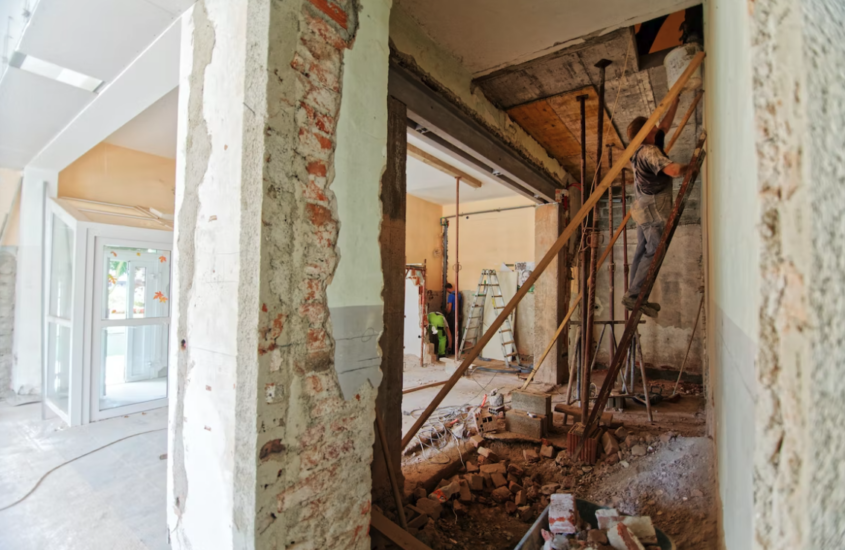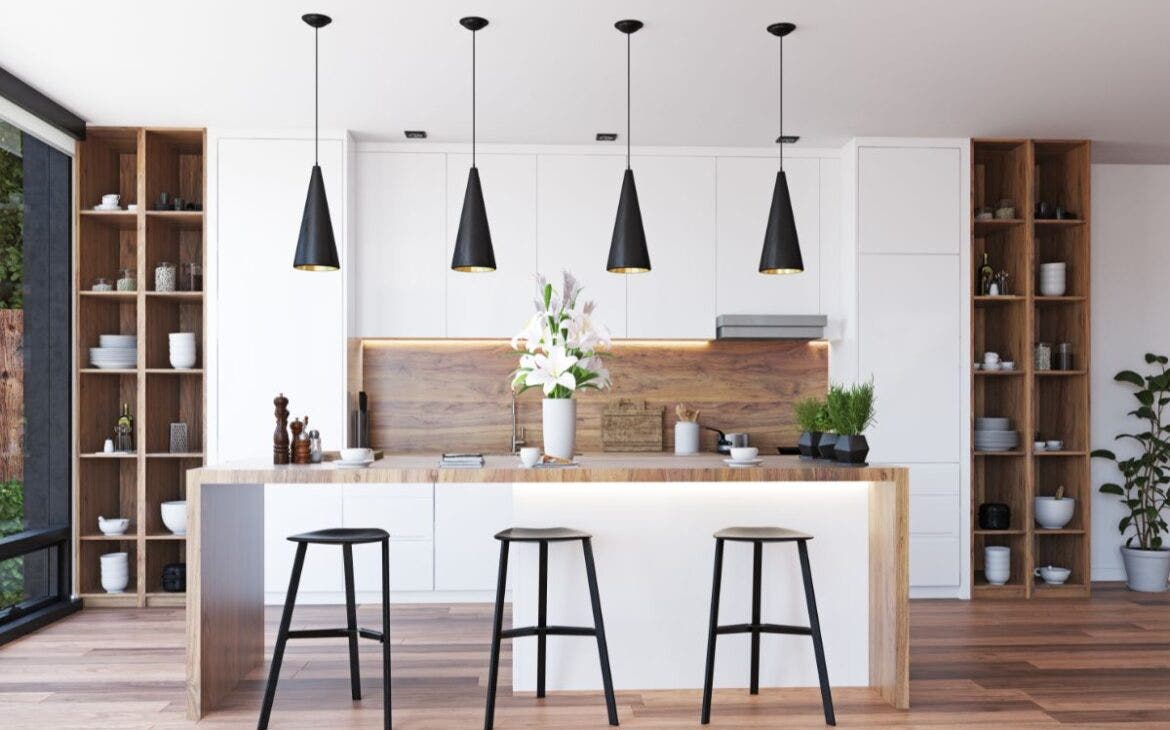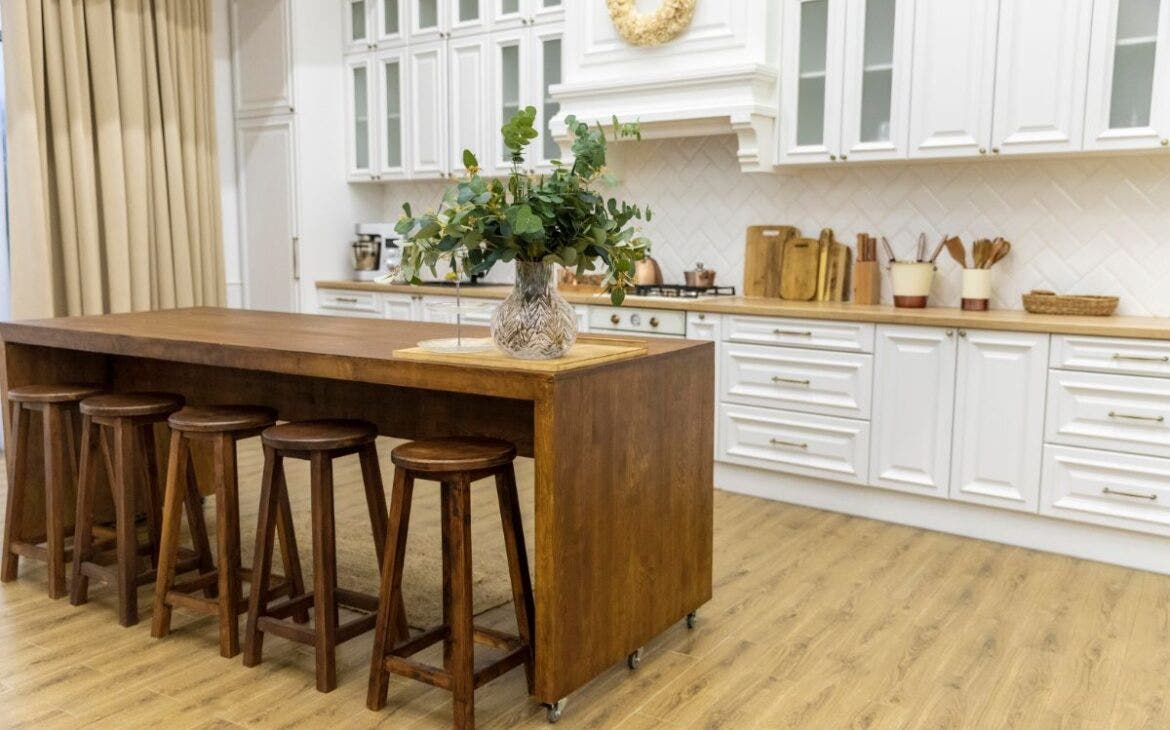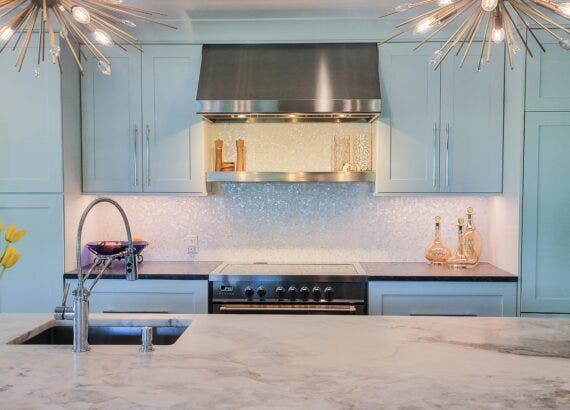How to Start a Home Remodel (A Comprehensive FAQ)

If you’re reading this, chances are you’re considering embarking on a renovation project for your home. As an expert in the field of home renovation and someone who sells range hoods, I understand that embarking on a home remodel can be a daunting task. There are so many questions to consider: How do I choose the right contractor? What is the best way to budget for a remodel? How can I make sure the end result is exactly what I want?
The National Association of Realtors found, as of this writing, that home remodels are growing rate of 4.4%.
In 2021, home remodeling generated a significant $369 billion in revenue, a 9% increase from the previous year. This trend is reflected in the median spending on home remodeling, which was $18,000 in 2021, and even more for homebuyers who recently purchased their home, at $30,000. Keep reading to learn more about the current state of the home remodeling industry and how you can make the most of it.
Table of Contents
What are the first steps to take before remodeling a home?
Before embarking on a home remodeling project, it is important to carefully plan and prepare. Some initial steps to take include:
- Setting a budget: Determine how much money you have available to spend on the remodel and any financing options you may want to consider.
- Identifying your goals: Think about what you hope to achieve with the remodel. Do you want to create more functional space, update the look of your home, or add value for resale?
- Researching contractors: Start gathering a list of potential contractors to work with. Look for ones with good reputations and experience in the type of work you need done.
- Obtaining necessary permits: Depending on the scope of your remodel, you may need to obtain building permits from your local government. Your contractor should be able to advise you on this.
- Making a schedule: Consider how long you want the remodel to take and when you would like it to begin and end. This will help you coordinate with your contractor and make sure the project stays on track.
How can I choose the right contractor for my home remodel?
Choosing the right contractor is a crucial step in the remodeling process. Here are some tips for finding the best fit for your project:
- Get referrals: Ask friends, family, and neighbors for recommendations of contractors they have previously worked with. You can also check online review sites to get a sense of a contractor’s reputation.
- Meet with multiple contractors: It’s a good idea to meet with at least three contractors to discuss your project and get estimates. This will give you a sense of the range of prices and allow you to compare the contractors’ approaches and level of experience.
- Check their credentials: Make sure the contractors you are considering are licensed and insured. You can check with your local licensing agency to verify this information.
- Review the contract: Carefully review the contract before signing it. Make sure it includes details on the scope of work, materials to be used, and the payment schedule.
- Trust your instincts: It’s important to feel comfortable and confident in your contractor’s abilities. If you have any doubts or concerns, it’s better to keep looking for a better fit.
How do I create a realistic budget for my home remodel?
Creating a realistic budget is essential for a successful home remodel. Here are some steps to follow to help you plan your financials:
- Determine your goals: As mentioned earlier, it’s important to have a clear idea of what you want to achieve with your remodel. This will help you prioritize your spending and allocate your budget appropriately.
- Research costs: Look into the cost of materials, labor, and any other expenses that may come up during the remodel. You can use online resources or consult with contractors to get a sense of what things will cost.
- Leave room for the unexpected: No matter how well you plan, there is always the potential for unexpected costs to arise during a remodel. Make sure to set aside a contingency fund to cover any unexpected expenses that may come up.
- Consider financing options: If you don’t have enough cash to cover the remodel’s entire cost, you may want to consider financing options such as a home equity loan or a personal loan.
- Stick to your budget: Once you have a budget in place, it’s important to stick to it as closely as possible. This will help you avoid overspending and keep your remodel on track.

What should I consider when designing my home remodel?
There are a few key factors to consider when designing your home remodel:
- Functionality: Think about how you will use the space and what features will make it more functional for your needs. For example, if you are remodeling a kitchen, consider the layout, storage needs, and appliances you will want to include.
- Style: Consider the overall aesthetic you want to achieve with the remodel. Do you want a traditional, modern, or something in between?
- Flow: Think about how the remodeled space will fit in with the rest of your home. You want the new space to flow seamlessly with the existing layout and design.
- Budget: Keep your budget in mind as you design the space. You may need to make compromises or adjust your plans based on your financial constraints.
- Timing: If you are planning to sell your home in the near future, you may want to consider design choices that will appeal to a wider range of buyers.
What are some additional things to keep in mind during the remodeling process?
Once you have your plan in place and your contractor selected, there are a few things to keep in mind during the actual remodeling process:
- Communication is key: Make sure to keep in regular communication with your contractor to discuss the progress of the project and address any questions or concerns.
- Expect the unexpected: Even with careful planning, it is not uncommon for unexpected issues to arise during a remodel. Be prepared for delays and budget adjustments as needed.
- Keep an eye on the budget: Make sure to keep track of your spending and stay within your budget. If you need to make changes to the scope of the project, communicate these with your contractor and get updated cost estimates.
- Take care of yourself: Remodeling can be a stressful and time-consuming process. Make sure to take care of yourself and your family during the process. This may mean setting aside time for relaxation or hiring extra help to take care of tasks such as cleaning or childcare.

Additional Questions Our Customers Have:
Q: How much does a home remodel typically cost?
A: The cost of a home remodel can vary widely depending on the scope of the project and the materials used. According to HomeAdvisor, the average cost of a home remodel in the US is around $40,000, but smaller projects can cost as little as a few thousand dollars. In contrast, larger, more extensive remodels can cost upwards of $100,000 or more.
Q: How long does a home remodel typically take?
A: The length of a home remodel can also vary depending on the project’s scope. A small cosmetic remodel may only take a few days or weeks to complete, while a larger, more extensive remodel can take several months or more. Discussing the timeline with your contractor and making a schedule that works for you is important.
Q: Should I try to do the remodel myself or hire a contractor?
A: It’s important to consider your own skills and experience when deciding whether to hire a contractor or attempt the remodel yourself. If you have experience in construction and feel confident in your ability to complete the work, you may be able to save money by doing it yourself. However, if you are unsure of your abilities or the project is complex, it may be worth it to hire a professional contractor to ensure the work is done safely and to a high standard.
Q: What should I look for in a contractor?
A: When looking for a contractor, it’s important to find someone who is licensed and insured, has a good reputation and a track record of successful projects and is willing to work with you to meet your goals and budget. You should also make sure to review the contract carefully before signing and ask any questions you have to ensure you are clear on the scope of work and the payment terms.
Q: What if I have to make changes to the scope of the project during the remodel?
A: It’s not uncommon for homeowners to want to make changes to the scope of the project as the work progresses. If this happens, it’s important to communicate the changes to your contractor as soon as possible and get updated cost estimates. Keep in mind that making changes to the project may impact the timeline and budget, so it’s important to carefully consider any changes before making a decision.
Q: Do I need to obtain a building permit for my home remodel?
A: It depends on the scope of the project and the laws in your area. Some types of remodeling work, such as electrical or plumbing work, may require a permit. It’s a good idea to check with your local building department to see if a permit is required for your specific project. Even if a permit is not required, it’s still a good idea to let your local building department know about the work being done in case they have any requirements or recommendations.
Q: Should I try to match the existing style of my home when remodeling?
A: It depends on your personal preferences and the goals of the remodel. If you are planning to sell your home in the near future, it may be a good idea to consider the style preferences of potential buyers and choose a design that will appeal to a wide range of people. On the other hand, if you are planning to stay in your home for the long term and want to create a space that reflects your personal style, you may choose to incorporate more unique or specific design elements.
Q: Is it good to use the lowest bidder for my home remodel?
A: Not necessarily. While staying within your budget is important, the lowest bidder may not always be the best choice. It’s a good idea to get estimates from multiple contractors and consider factors such as their experience, reputation, and the quality of their work. It’s also a good idea to review the contract carefully before signing to make sure you are clear on the scope of work and the payment terms.
Q: Can I make changes to the design of my home remodel after the work has already started?
A: It’s generally not a good idea to make significant changes to the design of a home remodel once the work has already started. Making changes to the project can impact the timeline and budget and may require additional materials and labor. It’s a good idea to finalize the design and scope of the project before the work begins to avoid any delays or extra costs.
Q: Is it a good idea to move out of my home while the remodel is being done?
A: It depends on the scope of the work and your personal preferences. If the remodel is extensive and involves major disruptions to your daily routine, you may consider temporarily moving out during the construction process. On the other hand, if the work is relatively minor and you are able to work around the construction, you may choose to stay in your home during the remodel.
By following these steps and keeping these considerations in mind, you can set yourself up for a successful home remodeling project.







Comments are closed.